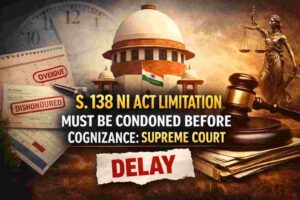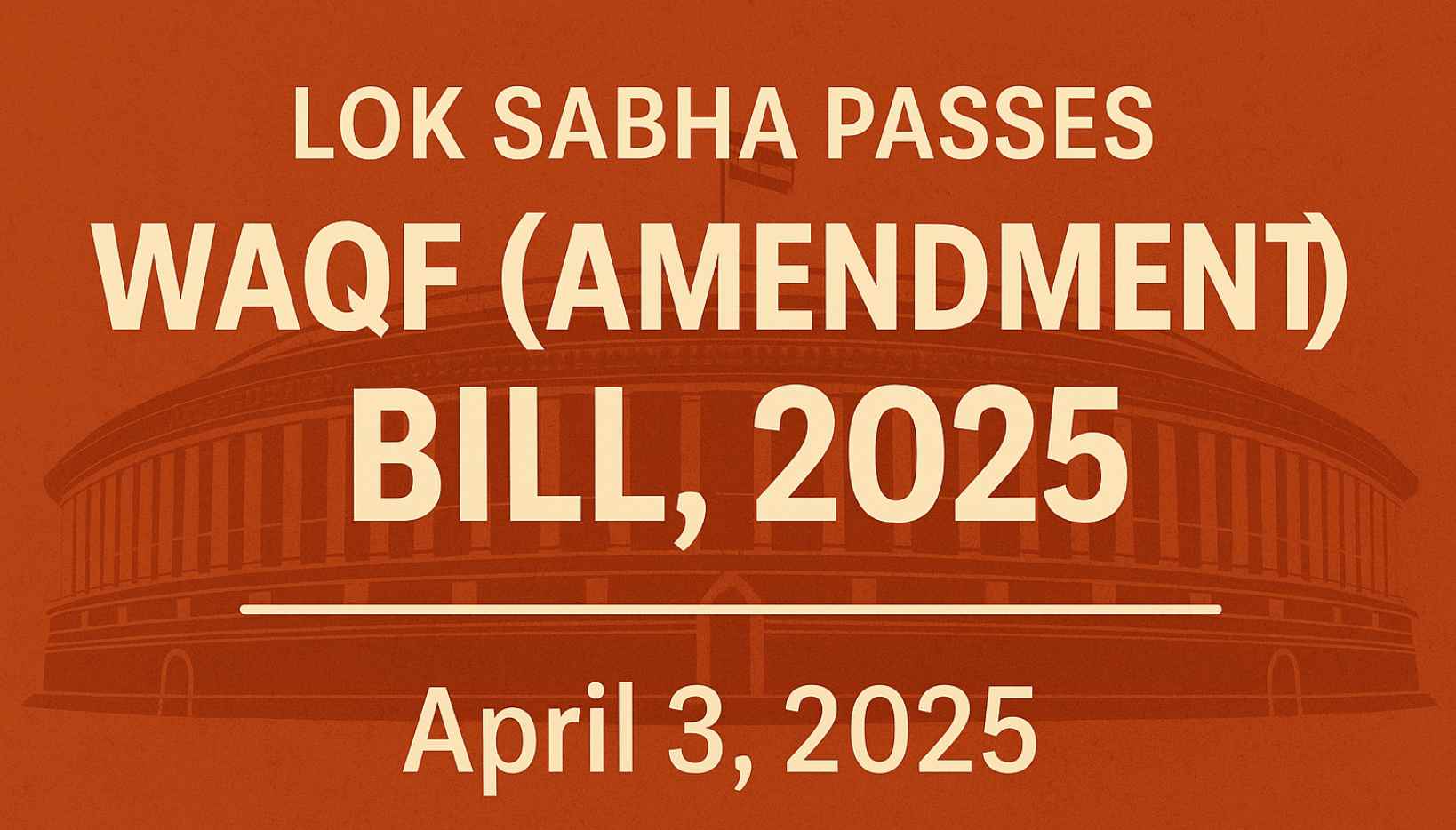Waqf (Amendment) Bill 2025: Changes, Controversy & Political Reactions
New Delhi | April 3, 2025: The Lok Sabha has passed the Waqf (Amendment) Bill, 2025, following an intense 12-hour debate that extended into the early hours of April 3.
The Bill, introduced by Union Minister Kiren Rijiju, was approved with 288 votes in favor and 232 against.
The Waqf (Amendment) Bill, 2025, proposes significant changes to the Waqf Act, 1995, including renaming it to the Unified Waqf Management, Empowerment, Efficiency, and Development Act.
The Bill modifies provisions concerning the declaration, administration, and governance of Waqf properties in India.
Key Amendments in the Waqf (Amendment) Bill, 2025
#1 Eligibility for Waqf Declaration
Only a Muslim practicing Islam for at least five years can declare a Waqf, provided they own the property.
The Bill removes the concept of Waqf by user, meaning properties cannot be considered Waqf solely based on prolonged religious use.
#2 Changes in Waqf Governance
The Central Waqf Council, which earlier required all members to be Muslim, will now have at least two non-Muslim members.
However, Muslim representation remains mandatory for religious scholars and Waqf Board chairpersons.
#3 Financial & Administrative Contro
The Central Government gains powers to regulate Waqf registration, audit processes, and financial transparency.
The Comptroller and Auditor General (CAG) can now audit Waqf properties, previously managed by State Governments.
#4 Judicial Oversight Strengthened
The Bill removes Waqf Tribunals’ exclusive authority, allowing appeals to be filed in the High Courts within 90 days.
#5 Recognition of Sect-Specific Waqf Boards
In addition to Sunni and Shia Waqf Boards, the Bill allows the formation of separate boards for Aghakhani and Bohra sects if they meet certain thresholds.
Political Debate: BJP Defends, Opposition Calls It Unconstitutional
Government’s Justification
Union Minister Kiren Rijiju clarified that the Bill is purely administrative and does not infringe on religious freedoms. He remarked:
“Had this amendment not been introduced, even Parliament could have been claimed as Waqf property.”
Union Home Minister Amit Shah assured the Muslim community, stating:
“No non-Muslim will interfere in Waqf matters. This Bill simply ensures transparency in property management.”
BJP MP Tejasvi Surya called the previous Waqf law a “constitutional fraud” imposed by the Congress party.
Opposition’s Strong Resistance
Congress MP Gaurav Gogoi slammed the Bill, calling it an
“attack on the basic structure of the Constitution”.
AITC MP Kalyan Banerjee argued that the Bill violates Article 26 of the Constitution, which grants religious denominations the right to manage their affairs.
Congress MP KC Venugopal accused the BJP of targeting minorities:
“The world is watching as you attempt to divide the country for political gains.”
RSP MP NK Premachandran questioned the inclusion of non-Muslim members in Waqf Boards, comparing it to interference in Hindu Devaswom Boards.
Independent MP from Jammu & Kashmir, Abdul Rashid Sheikh, criticized the ruling party’s numerical dominance in Parliament, stating:
“This is a numbers game, and Muslims are stuck in between.”
AIMIM MP Asaduddin Owaisi tore a copy of the Bill in protest, questioning the government’s power to appoint non-Muslim members in a religious institution.
Kerala Congress MP K Francis George dismissed claims that the Bill would resolve the Munambam-Waqf dispute in Kerala, calling the amendments
“unnecessary intrusions”.
Implications & Next Steps
With the Lok Sabha’s approval, the Bill will now be sent to the Rajya Sabha. If cleared, it will require Presidential assent to become law.
Legal experts anticipate constitutional challenges, with opponents likely to move the Supreme Court against provisions affecting Waqf governance.
Party Stand on the Waqf (Amendment) Bill, 2025
| Party | Stance |
|---|---|
| Bharatiya Janata Party (BJP) | Supported, citing transparency & governance |
| Indian National Congress (INC) | Opposed, calling it unconstitutional |
| All India Trinamool Congress (AITC) | Opposed, citing religious rights |
| AIMIM | Strongly opposed, called it undemocratic |
| Revolutionary Socialist Party (RSP) | Opposed, questioned non-Muslim Waqf Board members |
| Kerala Congress | Opposed, rejected its impact on local disputes |
| Independent MPs (J&K) | Opposed, called it a numbers game |
Key Details
- Bill Introduced By: Union Minister Kiren Rijiju
- Debated Under: Union Home Minister Amit Shah
- Passed In: Lok Sabha on April 3, 2025, at 2 AM
- Total Votes: 288 in favor, 232 against
- Next Step: Rajya Sabha Review & Presidential Assent
Follow The Legal QnA For More Updates…















